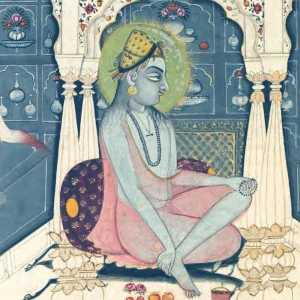A person who has read the first sentence in a new language feels like overcoming a mountain. A person scrolling through Instagram feels the ease of sliding. But we call both cases “reading” … Attention looking for fun, flips through the lines in passing; or looking for ideas, arguments, attention that grows into sentences. So… Continue reading Slow and cursory reading
Category: Sanskrit
Why Read Ancient Texts?
They have once again asked me: why in general read ancient texts, the more so commentaries on them? Why a person like me, a modern yogi who is rather future-focused than past-minded, the one who objects to traditionalism in all its manifestations and gives skeptical smile to talks on “paramparas” and consecrations, decided to spend… Continue reading Why Read Ancient Texts?
The Mechanisms of Mantras Effect (continuation)
In addition to and in confirmation of the foregoing I shall adduce a popular article in which they give the results of the latest speech physiology studies. Our particular interest is drawn by the “mechanics of phonetics” section [the original English text is here – transl.note], the investigation in which they have used the state-of-the-art… Continue reading The Mechanisms of Mantras Effect (continuation)
Sanskrit and Mantra-Yoga
The following two lines of Yoga Sutras are dedicated to mantras and power of the sound. तस्य वाचकः प्रणवः ॥२७॥ 1.27. tasya vachakah pranavah तज्जपस्तदर्थभावनम् ॥२८॥ 1.28. tajjapas tad-artha-bhavanam Sutras 27 and 28 tell that “the expression of that (Isvara) is OM (pranava)” and “the repetition of it (Om) in one mind’s eye allows one… Continue reading Sanskrit and Mantra-Yoga
An Aesthetically-Linguistic Note on Yoga and Samadhi
I cannot stop marveling at the way how deeply, almost at the archetypic level those various aspects of ancient Indian views – yoga, philosophy, grammar and medicine – happen to be intertwined. Here is the recent fact that has astonished me. As I have already written in one of my previous articles almost all words… Continue reading An Aesthetically-Linguistic Note on Yoga and Samadhi
Sutra 1.26. Ishvara, prakriti and sanskrit grammar
In the previous article I have mentioned the Tantric concept of Purusha (Ishvara) and Prakriti in which Ishvara comes as a static “male”, passive-ordering principle that is opposed to Prakriti – the active and chaotic, “female” one. This correlation of principles is symbolized in many different ways, for instance, by the therein given figure of… Continue reading Sutra 1.26. Ishvara, prakriti and sanskrit grammar
The Lessons of Mahabharata and “Traditional” Values
Have you ever paid attention to the fact that allgrand classic epicsare utterly tragic and their endingsare worlds away from thosehappy-ends of Hollywoodthat we are used to? So that even if the principal(allegedly positive) characters attain their goals they experience heavy disappointment all the same.Gilgamesh loses the magical herb of immortality andaccepts his destiny of… Continue reading The Lessons of Mahabharata and “Traditional” Values
Definitions of Yoga. Sutra 1-2
Frankly speaking, when I was starting this blog I did not want to deal here with analysis and comparison of existing translation variants, let alone their criticism, leaving the criticism to those who enjoys doing it J. What I intended to do was to accompany the reader on the way of understanding Patanjali, so to… Continue reading Definitions of Yoga. Sutra 1-2
The Fundamentals of Sanskrit Grammar
Whenever someone suggests that you translate Yoga-Sutras using only a dictionary and without knowing enough about Sanskrit grammar – don’t fall for it! This person is either not aware of what he is talking about and has never been doing it himself, or it is no further than the third or fourth line of the… Continue reading The Fundamentals of Sanskrit Grammar

